Average sizes and life expectancy for this breed:
Donskoy, also known as Don Sphynx, Don Hairless, Russian Donskoy and Russian Hairless, are known for their affectionate, playful and friendly nature. They are also very sociable and enjoy being around their human companion and other cats. They blossom into a happy and content family pet through companionship, quality time spent and interaction.
Aside from being amicable and good-natured felines, they are also clever, curious, and high-spirited, spending most of their time on the go. A Donskoy does best in a household where they can discover and explore their surroundings and have adventures independently.
Donskoys are a Russian cat breed whose history began in the city of Rostov-on-Don, Russia. They are very sophisticated and sweet and these gorgeous hairless cats remind you of the extraterrestrials coming from outer space. Their appearance is characterised by their wrinkles giving them a distinctive old and wrinkly look. Due to their hairless characteristics, these cats need regular grooming.
This gentle cat breed is considered hairless. Although, some Donskoys have either very short peach-fuzz fur or patchy fur. Some Donskoy kittens are born entirely hairless while others lose their hair gradually, depending on the hair losing gene they inherit.
The Donskoy cat thrives on companionship, and they are best suited for those who love spending time interacting with them regularly rather than leaving them alone for long periods. Their friendliness and social nature make them an ideal pet for young children and companions for other pets.
See available kittens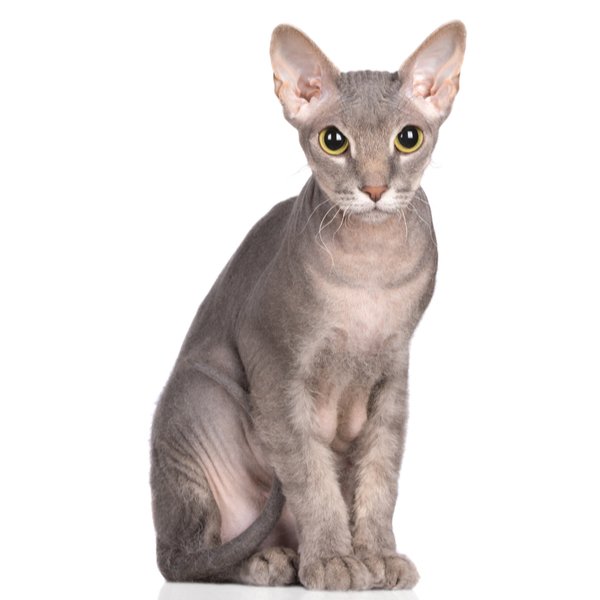

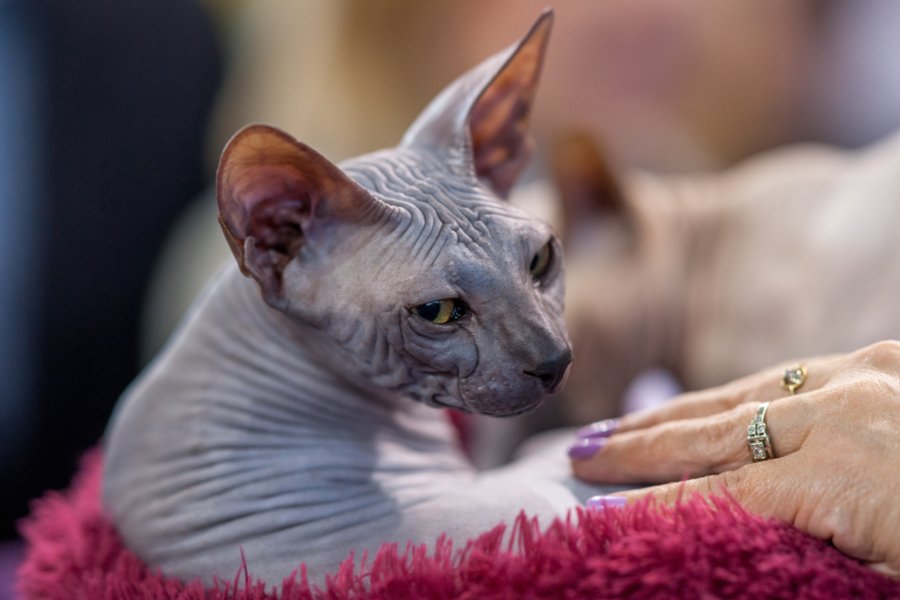


The Donskoy is a Russian cat breed whose history began in 1987 with the founder cat discovered in Rostov-on-Don in Russia. Elena Kovaleva, a State Pedagogical Institute professor, met young boys playing soccer carrying a bag. Inside that bag was a kitten crying of pain and fear. Elena took the bag and brought the poor kitten home. She then named the kitten Varvara.
As Varvara grew up, she began losing her hair.Varvara attempted to treat this condition but nothing worked. Years later, Varvara gave birth to both haired and totally hairless kittens. The adorable kittens with hair started losing it just as their mother did. Some people thought this meant the kittens were unhealthy, and they told Elena to get rid of them.
Good thing, an enthusiast and professional cat breeder, Irina Nemikina, rescued one of these kittens and started a breeding programme with it. Several years later, she generated an entirely new breed of Russian cat, a hairless one named the Don Sphynx. The name Don was after the river where Varvara was found and Sphynx because it was hairless.
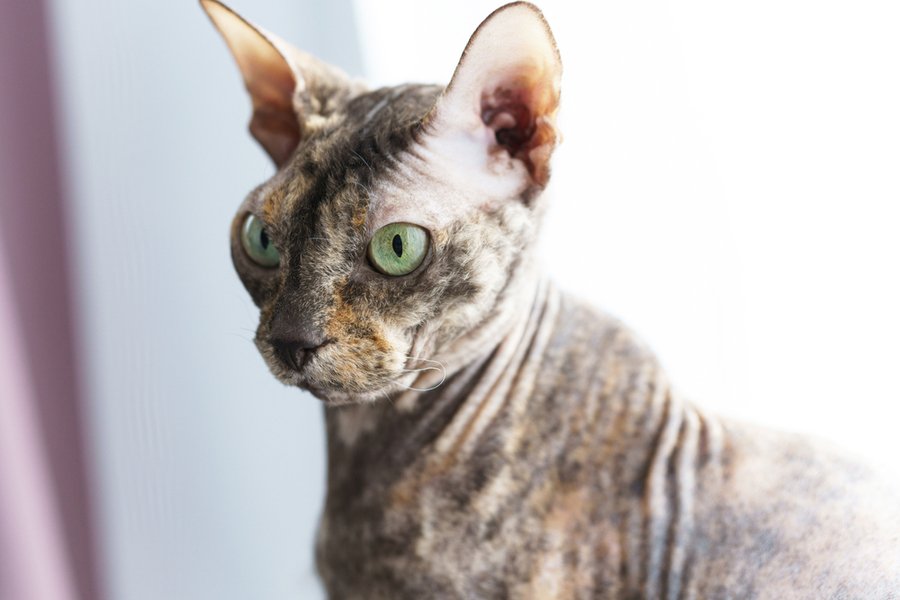
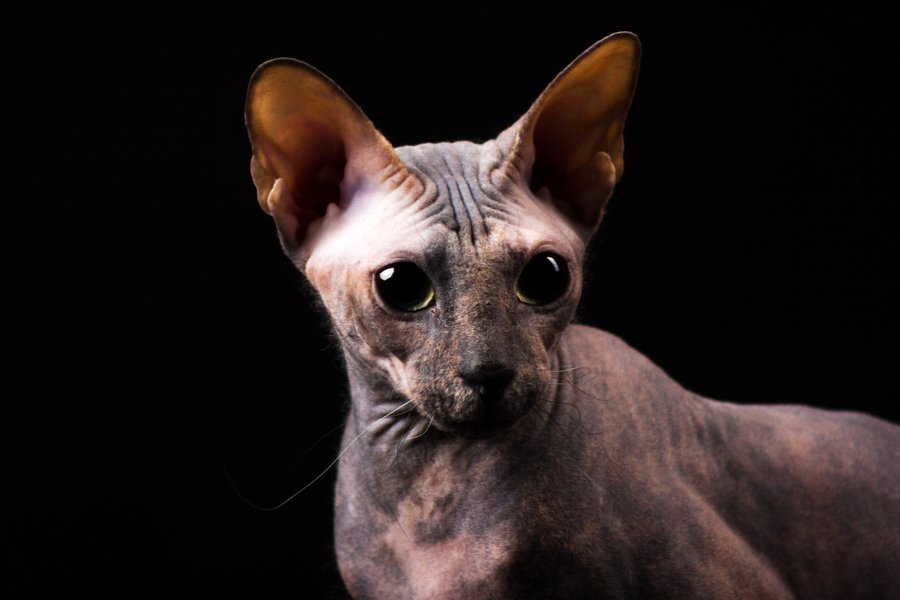
Donskoys have four different coat types in an assortment of colours. All but one coat typically results in hairlessness. Donskoys carry a dominant hair loss gene that causes their birth coat to fall out if they have one. Their coats include the following:
Some Donskoys can grow winter coats characterised as fine wool on their chest and hairs on the end of their tail but will lose it again when the warm months begin. Their skin is comparable to humans: it produces sweat when it is hot and gets sun-tanned.
This cat breed has a sophisticated yet strong and well-boned body. They are medium-sized with soft hairless, wrinkled skin that feels hot and silky to the touch. Their skin is remarkably elastic with noticeable wrinkles on their cheeks, jowls and under their chin. They also have vertical wrinkles that separate their ears and run down their forehead, spreading into horizontal lines above their eyes.
Wrinkles can also be found in multiple other parts of the body. This includes the base of the neck, chest, base of their tail, on the front and undersides of the legs, and down the sides of the body to their underbelly and groin.
Generally, male Donskoys, as a rule, are larger than their female counterparts. However, both genders have medium to medium-long, thin, well-muscled, and strong-boned bodies with a broad breast and croup. They have a profound groin-line with a well-rounded abdomen called a fatty belly, where their fat accumulates in winter.
Their bodies are nearly pear-shaped. Their front legs are shorter compared to their back legs yet are well-proportioned with their body. Their oval-shaped feet have long slender toes. Their toes are very long, slender and distinguished with thumbs that bend inward rather than downward on the front paws. Their medium tail is straight and tapers from their body to a rounded tip.
Donskoys are fascinating, sophisticated, unique, curious, soft-hearted and friendly cats. They are very energetic, extremely welcoming, highly intelligent, very affectionate and amiable. They have a well-balanced personality. This cat breed shows a lively interest in their environment and enjoys playing games. Donskoys are extremely loving with a playful nature and high curiosity.
These hairless felines are very approachable and under the impression that every guest that enters their home is there to see them. Their social skills extend to other pets and animals to which they will also offer companionship.
They are devoted and dedicated to their human companion. These highly amicable cats require companionship and should not be without a companion pet, especially if left for long periods. They are best matched to those who love spending quality time and interacting with them frequently. Donskoy cats love to be a part of all your activities and are easily trained to obey voice commands.
Aside from being amicable and good-natured felines, they are also clever, curious, and high-spirited. A Donskoy will do best in a household where they can discover and explore their surroundings and have adventures independently. Thus, provide them plenty of interactive and puzzle toys that they can play alternately to help keep them contented and mentally stimulated. Their outgoingness and easygoing nature also makes them the perfect family pet for young children.
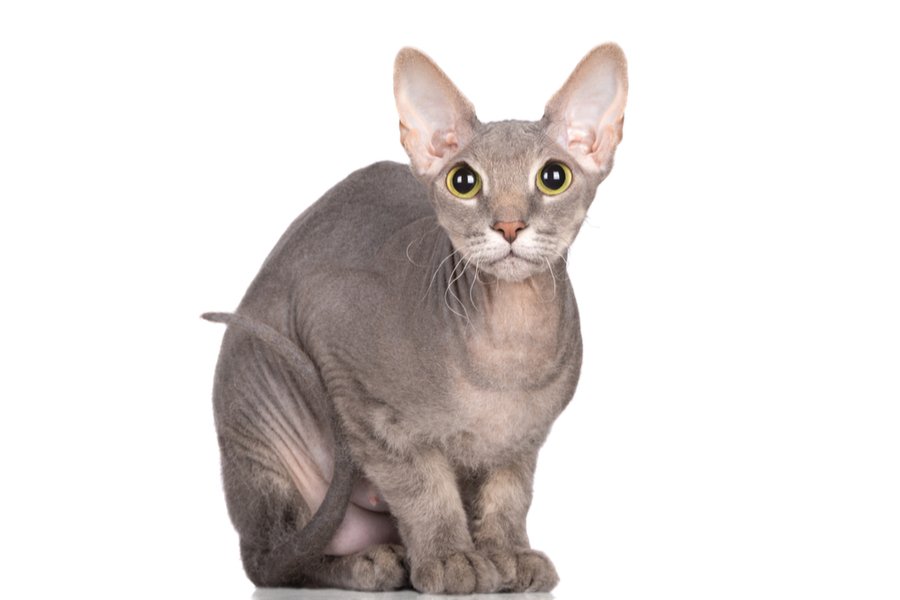
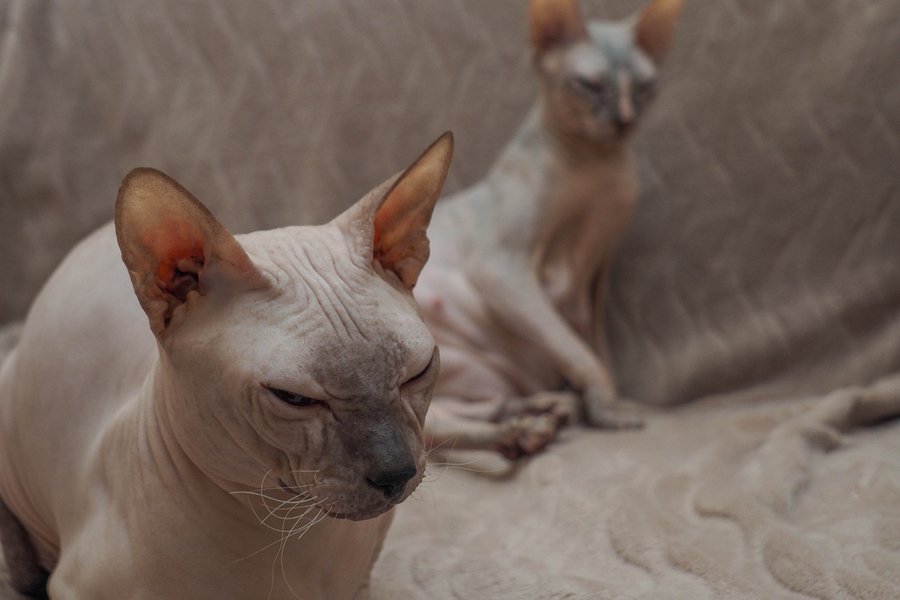
Because of their intelligent and curious personality, Donskoys are easy to train. You can start their training at an early age by teaching them simple tasks like using the litter box and the scratching post. As they mature and progress, teach your Donskoys more challenging games, tricks and commands, such as playing a game of fetch and retrieving.
It is vital for a Donskoy to regularly play with puzzles and interactive toys to keep their smart minds engaged. Don’t forget to reward them with treats when they complete a trick, follow a command or just by merely behaving throughout the training session. When a Donskoy is aptly familiarised and trained at kittenhood, they will thrive as a well-behaved and versatile family pet.
Donskoys are considered a hairless cat breed. And because of this, they have unique needs in the grooming department. Keep in mind that this cat breed does not need to be brushed. What they need is a daily wipe down whenever possible.
A Donskoy’s body produces oils, and they don’t have hair to absorb them. That’s why you need to check on your cat regularly to make sure that oils are not accumulated on the folds of their skin. Because of their hairlessness, Donskoys are prone to skin issues. So, make sure that daily wipe-downs and bathing is done to help prevent it. However, be careful not to over-bathe them as this can also make their skin excessively oily. You should bathe your Donskoy approximately once a month.
Be careful with the ever-changing weather, too. This cat breed can sweat and develop a tan, just like humans, with sunlight exposure. So, make sure to ask for your vet’s advice about sunscreen. Furthermore, while Donskoy cats may grow their winter coat, it is frequently fine and still unsuitable for freezing winters. Thus, these cats get cold easily and should be kept inside with lots of warm spots to sleep in.
Prevent ear infections by checking their ears once a week for dirt or any buildup. Observe your Donskoy for any foul odour, especially if it is coming from their ears, as it may be a sign of an ear infection. Clean them using a fresh cotton ball or a soft cloth with a vet-approved ear cleanser.
Just like their ears, it is crucial to regularly check their eyes to keep them clean and healthy. You can use a clean, soft cloth to eliminate any eye discharge or dirt. Make sure to use a different part of the clean cloth to prevent the spread of eye infection.
For dental hygiene, weekly brushing is sufficient to keep your Donskoy’s teeth healthy and free from tooth and gum diseases. For nail maintenance, you can trim them twice a month or when needed. What’s more, make sure that you keep their litter boxes clean. Donskoys, like many other cat breeds, are particular about their bathroom hygiene.
Due to their lack of hair and the inability to adapt to weather and temperature changes, it is recommended to keep your Donskoy as an indoor cat. Not only will it protect them against extreme temperature changes, it will prevent them from being attacked by feral cats and wild animals and protect them from diseases. Also, remember that your Donskoy is rare and frequently stolen. For thieves, they are an easy target because of their friendliness.
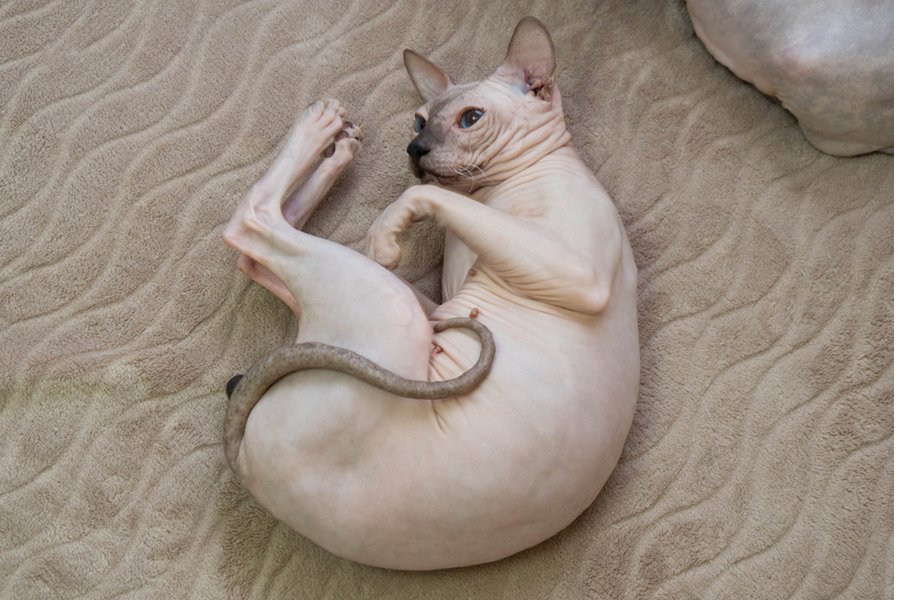
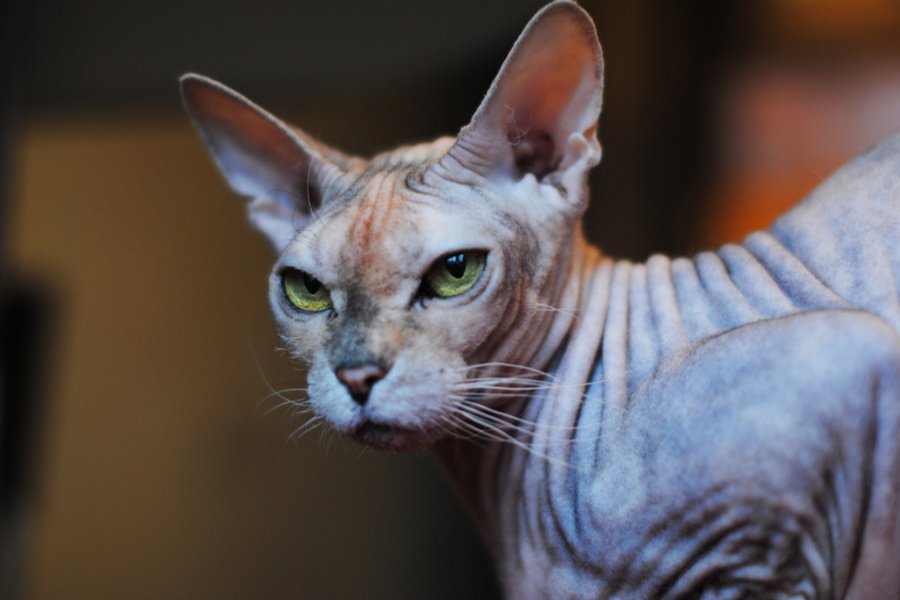
Donskoys are considered an overall healthy cat breed with no known genetic health conditions. Still, for all cat breeds we strongly recommend you buy only from a trusted and registered breeder to ensure good health. All reputable breeders breed in the most ethical way and run extensive health checks on their cats to ensure they are not breeding animals with any health conditions.
Because of their hairlessness, it is vital to check for skin issues like fungal infections that can result from too much oil. It's also essential to ensure they do not get sunburned if they have access to the outside world. Regular vet visits are also recommended to ensure they remain in tip-top condition and are up to date with their vaccinations and parasite treatments.
Don Sphynx cats are good-natured, intelligent and friendly. They are very outgoing and playful, which is why many families with children pick a Donskoy to bring home as a family pet. While they are friendly, it is still best to supervise your children when interacting with a Donskoy or any other cat breed. This is to prevent any mishandling like tail pulling that can result in a scratching accident.
Living under one roof with other pets such as cats and cat-friendly dogs is easy for a Donskoy. Because of their gentle and adaptable personality, this cat breed can live amicably with other pets in the same household. However, keep in mind that not all cat breeds are the same; always socialise your pets gradually and in controlled areas to guarantee that they learn to get along well together.
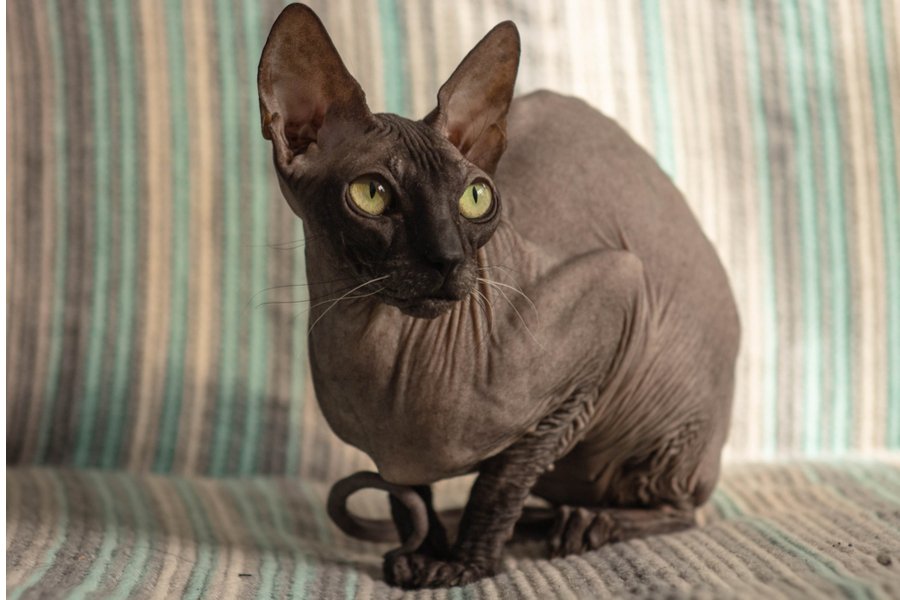
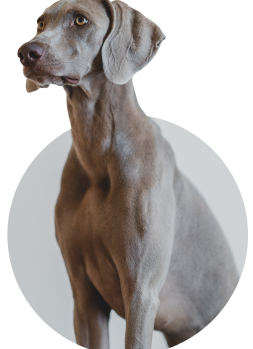
We can connect you with Breeders that are specialized in this particular breed.
See available kittens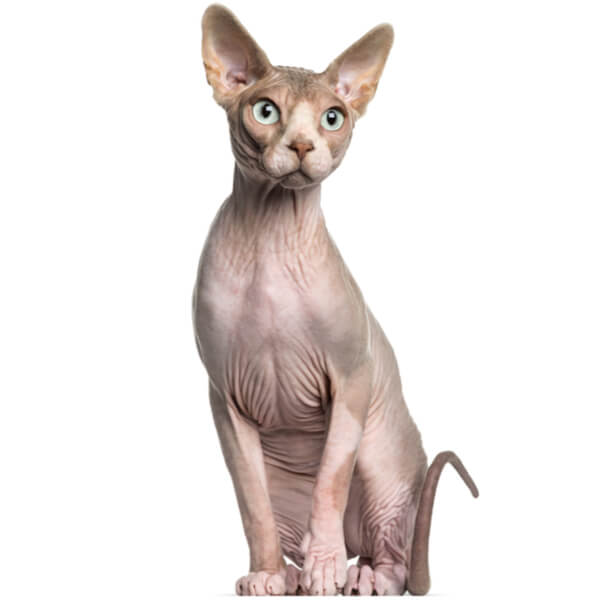
Canada
Size : Medium
Coat : Hairless
Registration : GCCF, TICA, CFA, FIFe
Vocality : High
Hypoallergenic : Yes
Grooming : Once a Week
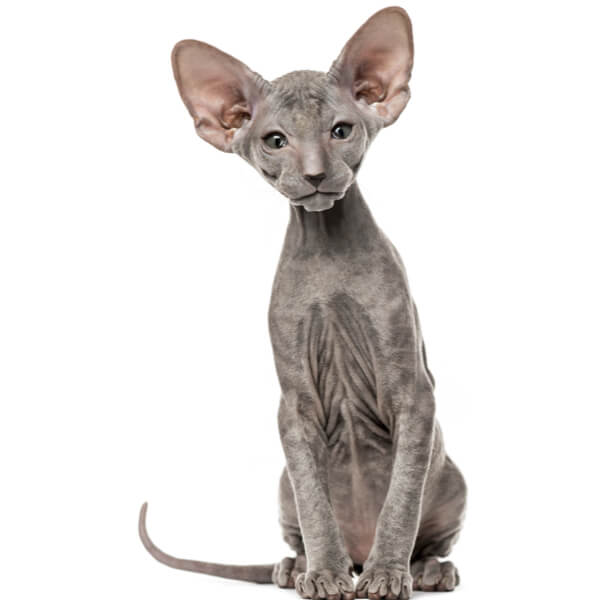
Russia
Size : Medium
Coat : Hairless
Registration : TICA, FIFe
Vocality : Medium
Hypoallergenic : Yes
Grooming : Once a Week
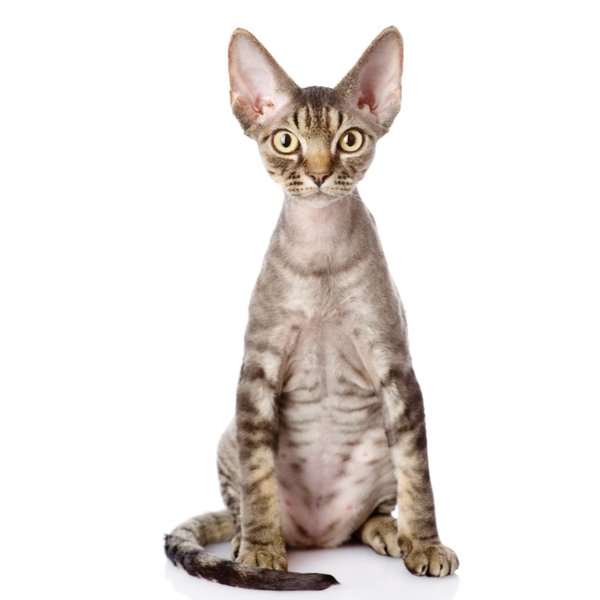
United Kingdom
Size : Small
Coat : Short
Registration : GCCF, TICA, CFA, FIFe
Vocality : Low
Hypoallergenic : Yes
Grooming : Once a Week
.jpg)
United States of America
Size : Small
Coat : Short
Registration : GCCF, TICA, CFA
Vocality : Low
Hypoallergenic : No
Grooming : Once a Week


Need some advice?
Whether you're a first time pet owner, an experienced pet owner, a new or long-time breeder, or just curious about pets, we've got you covered!
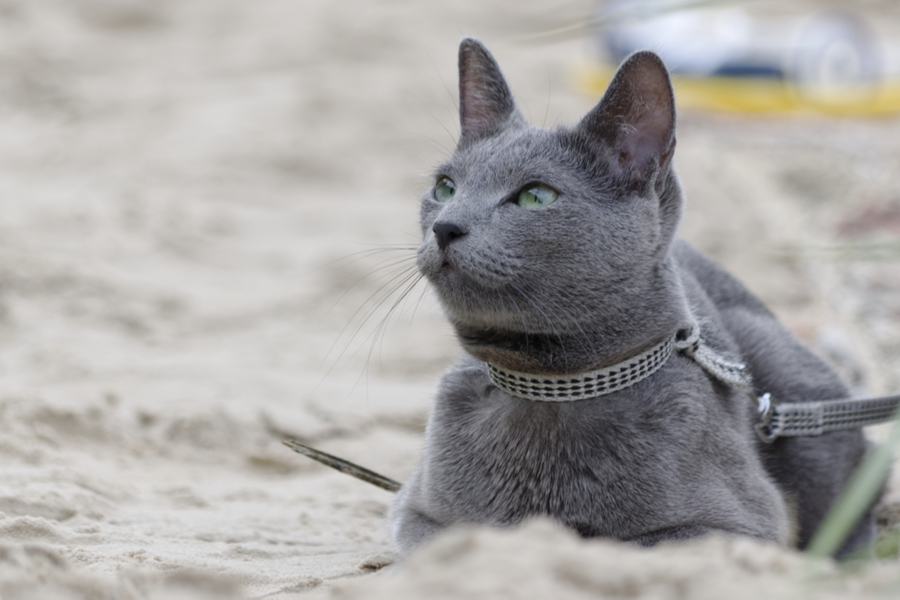
January 17, 2024
What Is The Personality Of Russian Blue Cats?
Russian Blue cats are most known for their distinctive shimmery blue-silver coat and piercing green eyes. However, this breed’s calm and gentle temperament is what makes them shine the most in the feline world.
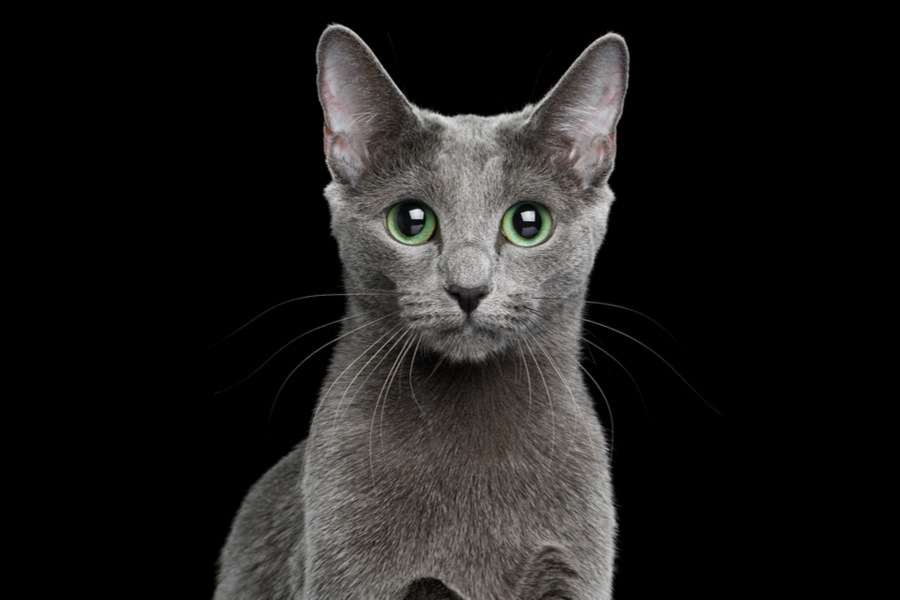
January 17, 2024
10 Facts About Russian Blue Cat Breed
Russian Blues are one of the most aesthetically stunning cat breeds, with a gorgeous plush silvery coat and vibrant green eyes. However, it’s not only their appearance that is beautiful; their nature is too.
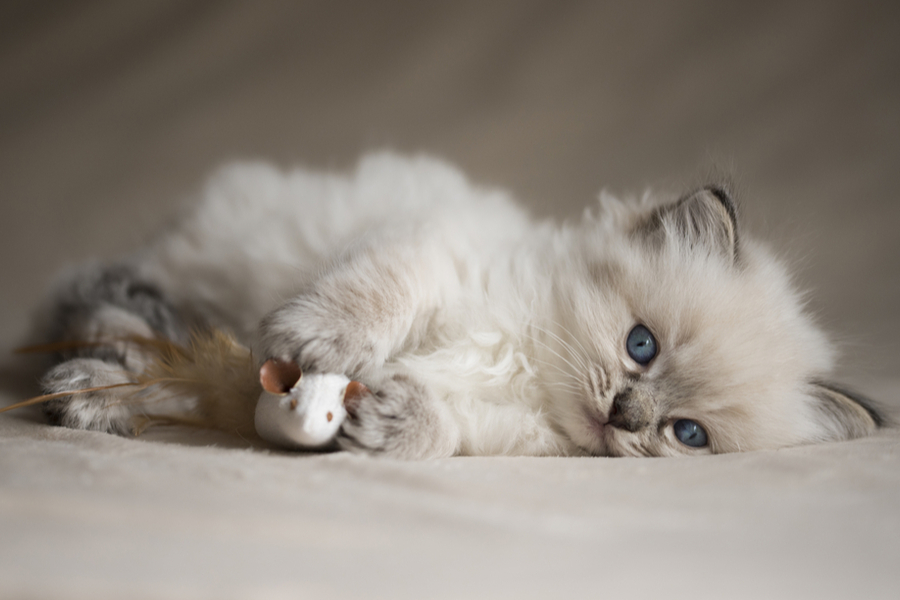
January 17, 2024
How To Choose The Right Cat Breed for You
Cats can make the most fantastic animal companions; they are adorable, friendly, and loving. However, not all felines are created equal. There are many different breeds, of which each has its unique personality traits.
Need some help?
Contact us to speak to our friendly advisor, who will gladly help you find your dream pet!



We are registered in England and Wales under registration number 12568840,
and our registered office is at 58-60 Kensington Church Street, W8 4DB London, England.
© 2023 The Pedigree Paws